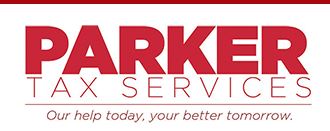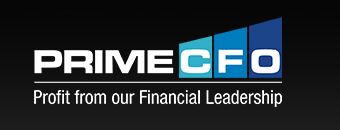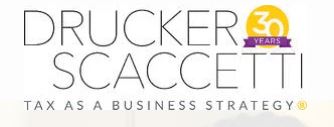Top Fractional CFOs in Philadelphia - 2024
List of the Top Fractional CFOs in Philadelphia
Wimgo takes pride in showing unbiased reviews on user satisfaction in our ratings and reports. We do not allow paid placements in any of our ratings, rankings, or reports.
Frequently Asked Questions About Fractional CFOs
Generally, a fractional CFO engagement tends to last about 3 months, it could also be much longer depending on if the CFO is being replaced. That being said, there have been cases where a fractional CFO engagement lasted from 6 months to about 5 years. There are even some arrangements that have lasted indefinitely. However, when it comes to engagements, the most common ones tend to last 1 to 2 years.
Fractional CFOs are able to work either remotely or on-site. This is typically dependent on the retainer agreement drawn up. It could also be that the fractional CFO would split their time between working on-site and working remotely, however, this tends to depend on the demands of the business or project.
With a fractional CFO, you do not have 24/7 access to them, as the rest of their time would have to be spent attending to their other clients. Additionally, they are unable to concentrate solely on your business and that could lead to your business not getting as much information as it would in the case of a traditional CFO.
Hiring a fractional CFO can mean cost savings to the business, as benefits, equity and profit-sharing agreements typically entered into with a traditional CFO are null and void.
A fractional CFO can improve cash flow by doing the following:
- Introducing strategies that prompt clients to pay their invoices quicker
- Ramp up collections in order to expedite payment receipts.
- Cooperate with creditors and banks to manage lines of credit
They can also improve profit margins by doing the following:
- Tracking spending by analysing things that are needed with things that aren’t
- Reviewing financial statements at a high level enabling the organisation and its team members to concentrate on more pressing matters
- Working with leadership to create a budget
- Analysing monthly data to determine where profits are generated from.
A CFO has numerous duties, from deciding when and where company funds are invested to financial reportage. It is the duty of a CFO to oversee a business’s capital structure, determine the appropriate equity debt mix as well as internal financing. One of the most integral duties of a CFO, however, is to address any issues surrounding capital structure.
Money management as well as an understanding of the business’s industry is a key trait for a fractional CFO.
Trustworthiness paired with logic is another key trait a fractional CFO should have, considering that it would be their job to manage the financial actions of a business. They would need to be trustworthy in order to analyse the organisation’s financial strengths and weaknesses, track cash flow, and propose corrective actions.
A fractional CFO needs to have strong leadership capabilities, as they have to be able to effectively communicate with the team, develop a vision for the future, and also share important information.
A fractional CFO should also be results-oriented. This means being able to set goals for the company which the finance team can work towards. It also involves discovering ways to measure outcomes and holding people accountable when those goals aren’t met.
A fractional CFO should be a strategist, being able to assist the CEO in novel opportunities, becoming more strategic, and taking on a role more akin to a business partner.
The fractional CFO should also be able to seamlessly translate the Key Performance Indexes of the company into integral information for the CEO, whilst also transforming the CEO’s strategy into an actionable plan. This plan also has to be communicated effectively to the rest of the organisation.
The fractional CFO should also have the skills of a spokesperson. They are not only responsible for financial issues, but they are also responsible for motivating the organisation to execute the company’s strategy and communicating with shareholders.
A fractional CFO should have broad technical knowledge in conjunction with financial management and reporting. This means they should understand the basics of investment, cash flow forecasting and much more.
A fractional CFO should also have the skills of a risk manager, especially as businesses become more international and complicated. They not only have to ensure compliance with a growing list of laws and regulations but they also need to recognise, assess, and respond to emerging and ongoing risks to the business.
Fractional CFOs tend to work on retainer agreements and the retainers usually range between $1,000 and $1,500 on the low end, $1,500 to $2,500 on the mid-end, and anywhere above $5,000 to $25,000 on the high end.
A fractional CFO costs tend to differ depending on the scope of work they do, the complexity and size of the business, the strength of the in-house finance team, and the business’s financials. A fractional CFO tends to cost on average anything from $3,000 to $10,000 per month. Fractional CFOs tend to charge an hourly rate range of $100 to over $250. However, this typically depends on the chosen tier of the fractional CFO. There are three tiers of remuneration, with the first being $50 to $125 per hour, the second being $125 to $150 and the third being $200 to about $350 per hour.
A fractional CFO (chief financial officer) can be defined as a CFO with experience who offers their services to companies on a contract, retainer, or part-time basis. This arrangement enables the company to have the expertise and experience of a qualified CFO without having to incur the traditional costs (bonuses, benefits, and salary) of a full-time CFO. A fractional CFO tends to work virtually with a goal to replace the full-time CFO on a temporary or permanent part-time basis.

Need A Little Help?
Talk with a vendor expert for free. Get a list of companies
that will be great for you in just 15 minutes.





















